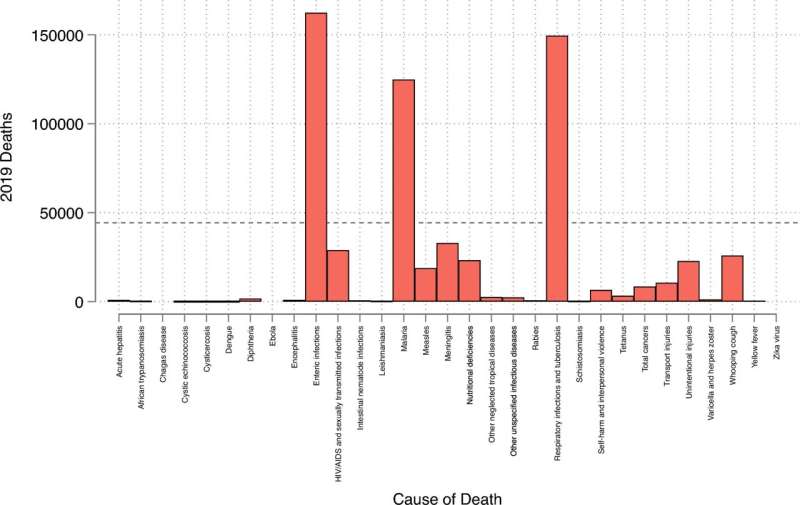This article has been reviewed according to Science X's editorial process and policies. Editors have highlighted the following attributes while ensuring the content's credibility:
fact-checked
peer-reviewed publication
trusted source
proofread
Female genital mutilation identified as a leading cause of death in African countries

Female genital mutilation (FGM) is a leading cause of death in the countries where it is practiced, with over 44,000 additional women and young girls dying each year, a new study reveals.
FGM accounts for more deaths in these countries than any cause other than enteric infections—usually resulting from consuming contaminated food or water—respiratory infections, or malaria and remains legal in five of the 28 countries where it is most practiced.
Researchers are calling for FGM to be made illegal Mali, Malawi, Chad, Sierra Leone, and Liberia, given that legal change can lead to cultural change. They also say that efforts must be stepped up to eliminate FGM in countries where it is practiced.
Publishing their findings in Scientific Reports, researchers from the Universities of Birmingham and Exeter analyzed the numbers of girls subjected to FGM in Benin, Burkina Faso, Cameroon, Chad, Cote D'Ivoire, Egypt, Ethiopia, Guinea, Kenya, Mali, Niger, Nigeria, Senegal, Sierra Leone, and Tanzania.
They discovered that a 50% increase in the number of girls undergoing FGM increases their five-year mortality rate and leads to estimated 44,320 excess deaths per year across countries where the practice takes place.
Co-author Professor James Rockey, from the University of Birmingham, commented, "Our findings show that FGM is a leading cause of death among girls and young women in countries where it is practiced, but lasting change requires changing attitudes towards FGM in these communities.
"There is cause for optimism, as work on non-communicable diseases shows effective interventions are possible, but change in patriarchal attitudes often lags other societal change—an important first step would be for FGM to be made illegal in the countries where it is within the law, given that legal change can lead to cultural change."
Globally, over 200 million women and girls have been subjected to FGM—a practice which often happens in unsanitary conditions and without clinical supervision with consequent severe pain, bleeding, and infection. It is known to lead to obstetric complications, reductions in sexual function, and other long-term physical health problems, as well as mental health problems.
The World Health Organization (WHO) estimates the aggregate cost of medical treatment for girls and women after FGM was $1.4 billion in 2018. However, until now, there has been no systematic evidence about the role of FGM in the global epidemiology of child mortality—reflecting difficulties in measuring the practice.
A key social dimension of FGM is how it impacts on marriage, for example, the practice influences women's marriage opportunities in Western Africa—due to patriarchal culture and institutions.
"Our research suggests that decisions about FGM may reflect trade-offs between perceived disadvantages of FGM, such as pain and illegality, and expected benefits such reduced social sanctions and a higher bride-price—people may factor in an increased risk of death as part of that calculation," added Professor Rockey.
More information: Ghosh, A. et al, Estimating excess mortality due to female genital mutilation, Scientific Reports (2023). DOI: 10.1038/s41598-023-38276-6. www.nature.com/articles/s41598-023-38276-6


















